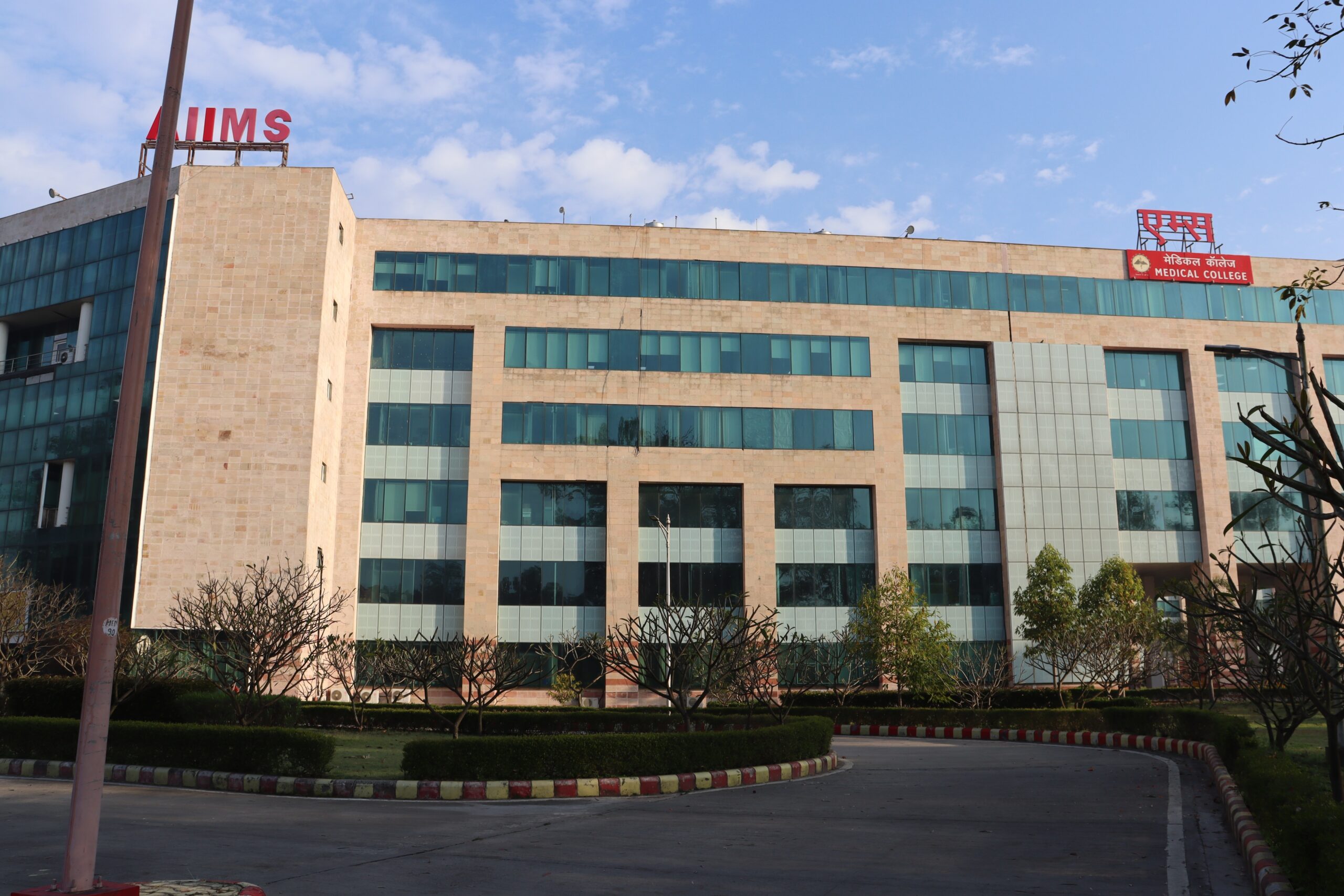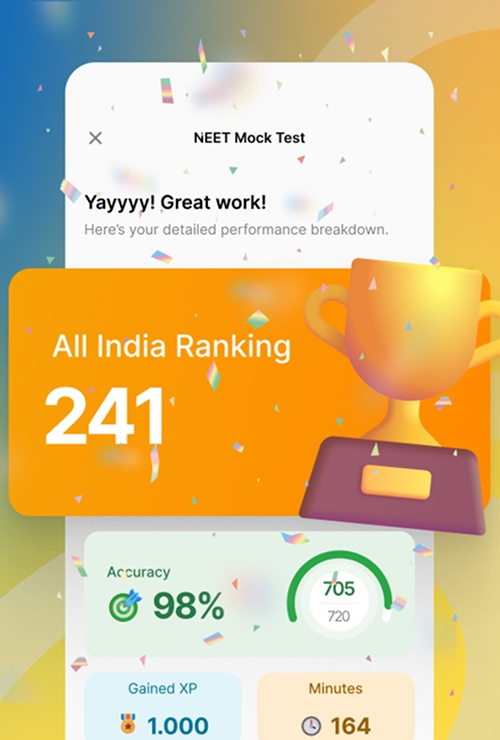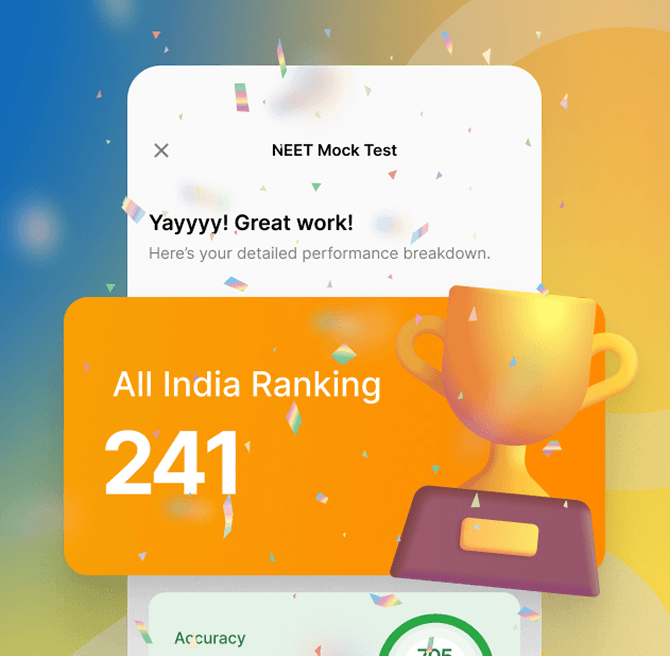
☝️ At a glance
- India offers 1,12,112 total medical seats across government and private medical colleges, with varying eligibility criteria and quotas.
- NEET is the primary exam for securing MBBS seats, with specific cutoffs for different categories and colleges.
- Government colleges have lower fees and a more competitive selection process than private colleges.
- Students should prepare for NEET well in advance with expert guidance available at NEETsheet by futureMBBS.
Remember a fun game called "doctor-doctor" that many of us used to play in childhood? From the game, it has become a dream of many Indian students. If we go by numbers, a total of 23,33,000 students took the National Eligibility-cum-Entrance Test (NEET UG) Examination in 2024. What we see is just a number, behind which there are several stories of students who prepared day and night for the medical entrance exam, NEET.
The increasing number of students aspiring for government medical colleges also portrays the importance of MBBS as a career choice in India. Students from backward districts/villages with minimum resources coming forward to pursue their dream of securing government MBBS seats. But do we have enough number of government medical seats to fulfill the growing demand? In this article, we will uncover everything about MBBS seats in India, specific reservations & criteria, etc. Keep reading to learn more.
Total number of MBBS seats in India
There are two primary categories of medical seats: Government and Private.
1. Government medical colleges
A medical college run by the Government that offers medical admissions to MBBS courses or training to qualify students for a recognized graduate medical qualification is a simple definition of a government medical college. The National Medical Commission (NMC) is a statuary body in India that regulates medical education, medical professionals, institutes, and research. After qualifying NEET UG exam conducted by the National Testing Agency, (NTA) and hitting the required cut-off, one can start applying for MBBS seats. The total number of government MBBS seats is approximately 55,648 offered by 434 government medical colleges.
Difference between NMC and MCI
The National Medical Council (NMC) has taken the place of Medical Council of India (MCI) as per the notification issued by the Ministry of Health and Family Welfare in the year 2019. Now, the the NMC functions as top regulator of medical education in India.
In India, the central and state governments run various medical institutions, including:
All India Institutes of Medical Sciences (AIIMS)
There are 20 AIIMS MBBS Institutes in India with total of around 2,044 MBBS seats, controlled by the central government. Some of the AIIMS institute's locations include New Delhi, Bhopal, Bhubaneshwar, Jodhpur, Raipur, Patna, and Rishikesh.
Government Medical Colleges
These are owned and controlled by the state governments and also function as referral hospitals. Tamil Nadu (277) has the highest number of government colleges followed by Karnataka (208), and Uttar Pradesh (206). Check the state-wise complete list of government medical colleges. Here
The total cost of setting up a medical college is shared between the central and state governments in the ratio of 60:40 respectively.
Central Universities
Some central universities in India offer MBBS courses and accept NEET UG, including famous two central universities:
Delhi University
Jawahar Lal Nehru Medical College (Aligarh Muslim University), Aligarh
Institute of Medical Science (Banaras Hindu University), Varanasi
Click here to download the NEET 2026 official syllabus.
Download PDFPrivate medical colleges
A private medical college is a privately owned and managed institution that offers medical education and training programs. They are affiliated with a state university and typically admit students based on their performance in the entrance exam, NEET (National Eligibility-cum-Entrance Test). The syllabus and exam pattern in private colleges is the same as in government colleges. As of March 2024, India has 320 private medical colleges, offering around 53,256 MBBS seats. The highest number of non-government medical colleges are in Karnataka, Uttar Pradesh securing second place. View the complete list of private medical colleges state-wise. Here.
R.G. Kar Medical College and Hospital in Kolkata, West Bengal, established in 1886 was the first private medical college in India and the first non-governmental medical college in Asia.
Difference between government and private medical colleges
The only basic & yet most prominent difference between government and private medical institutions is regarding the fees, the former have lower fees, while the later are more expensive. However, MBBS government colleges are known for better providers of education in MBBS programs. Factors like location and campus also differ.
Difference between private and deemed medical colleges
The main difference lies in the ownership and status of the institutions: Deemed Universities are autonomous and granted university status, while private colleges are privately owned and affiliated with universities for medical education programs.

Categories of MBBS seats and Eligibility criteria
Government Seats:
To gain a government MBBS seat, you must meet the specific criteria set by the NTA and the National Medical Commission (NMC). The National Eligibility cum Entrance Test for Undergraduate Courses (NEET-UG) is a crucial exam for aspiring medical students in India. Candidates must achieve the NEET cut-off percentile to be considered for seat allocation in Indian government medical colleges.
Category | Qualifying percentile |
UR/EWS | 50th Percentile |
OBC | 40th Percentile |
SC/ST | 40th Percentile |
UR/ EWS & PH | 45th Percentile |
OBC/SC/ST & PH | 40th Percentile |
The distribution of total medical seats in India is divided into two categories: All India Quota (AIQ) and State Quota:
All India Quota (AIQ)
15% of seats in each government medical college are reserved for AIQ. The National Testing Agency (NTA) manages the AIQ Rank List, and the Medical Counselling Committee (MCC) oversees the counseling.
State Quota
85% of them in each government college are reserved for state quota seats. These MBBS seats are allocated to candidates who are domiciled in the state and meet the criteria. Individual state counseling committees handle the State Quota Rank List.
Private Seats:
To be eligible for general seats in private medical institutions for MBBS courses, students must pass the NEET exam with the required cutoff.
Categories | Cut-off |
General/UR | 50th percentile |
OBE/SC/ST | 40th percentile |
UR-PH | 45th percentile |
SC/ST/OBCPPH | 40th percentile |
NRI quota: Reserved for Non-Resident Indians (NRIs), Overseas Citizens of India (OCI), or Persons of Indian Origin (PIO). This quota allows eligible students to secure a seat without competing in the general merit list.
Management quota: A reserved seat system for students under the management quota.
Note: Not all medical colleges in India offer NRI quota admissions. Fees for NRI quota seats are comparatively higher than regular fees, with each college having its own fee structure. Since number of students applying for these seats is low, the cut-off is also generally low.
Admission process
After successful registration, students submit their college priority list. The All-India Medical Counselling Authority (MCC) or the competent authorities of the respective States announce the merit list for academic sessions.
Features | Government MBBS seats | Private MBBS seats |
Cut-offs | High (above 650) | Low (starts from 144) |
Fees | Low ( 1k-1lac) | High (5 lac-1 cr) |
Specific reservation criteria | OBC/SC/ST/PH/EWS | NRI/ Management |
NEET Exam: The Gateway to MBBS Seats
NEET is the only national-level exam for admission to MBBS, BDS, and other medical courses in India. If you wish to gain an MBBS seat in your favorite medical college, you have to clear the NEET ug exam. To do so, you have to begin your exam preparation well in advance.
NEET Exam Pattern & Syllabus: Here is a short overview of the exam pattern so you can mentally prepare yourself for the amount of preparation required in it.
The exam is conducted in offline mode (pen-paper based) and the duration is 3 hours. The syllabus is based on the NCERT curriculum for classes 11 and 12, and the questions test the student's understanding of fundamental concepts in science.
Subject | No. of Questions |
Biology | 90 |
Chemistry | 45 |
Physics | 45 |
Total=180 MCQs |
NEET score matters! As the competition is becoming fierce with each passing year, the fight for total government MBBS seats is also getting tougher. With a limited number of MBBS government seats, students have doubled their hard work to make sure they get into their desired colleges. To give an extra boost to your preparation, you can apply the following tips:
Identify and Focus on Weak Spots
Understand the NEET Syllabus Thoroughly
Create a Structured Study Plan
Regular Practice and Mock Tests
Revision and Time Management
Click here to download the NEET Physics chapter-wise weightage
Download PDFStart your NEET preparation today!
With the right resources and expert guidance at futureMBBS, you can secure your MBBS seat at a top Indian government medical college. Learn from subject matter experts, explore comprehensive study materials, and enroll yourself for NEETsheet test series to eliminate the fear of NEET at just Rs 199. Take the first step towards your medical career with us now!
What is NEETsheet by futureMBBS?
Attention MBBS aspirants! Presenting you all, a super affordable platform to skyrocket your NEET preparation: the NEETsheet.
Get access to our courses with 7000+ questions, unlimited mock test and test series.
Experience the best live training in the form of live classes, revisions, doubt classes, class recordings, daily practice questions, and annotated notes.
Our stand-out feature, "parents-faculty meeting" is an outstanding way of building a strong partnership between parents and educators for the holistic development of the student.
What makes us different?
Learn from India's top EdTech Faculty
Our specially curated courses are taught by highly experienced faculty members who are leaders in the EdTech industry. Learn from their expertise and gain insights that will propel your educational journey.

Tailored courses
Each course is designed to meet the specific needs of students, ensuring a personalized learning experience. Tailored content helps students grasp concepts at their own pace and level.
Daily live interactive classes
Engage with teachers and peers in real-time through daily interactive sessions. These live classes encourage active participation, discussion, and better understanding of key topics.
Recorded lectures and notes
Access recorded sessions and notes at your convenience to revise important concepts. These resources ensure that you never miss out on learning, even if you're unable to attend a live class.
Power question bank
Our extensive question bank features a wide variety of practice questions to help you test and refine your knowledge. Use it to strengthen weak areas and prepare effectively for exams.
Regular test series and assessment
Track your progress with regular tests and assessments designed to evaluate your understanding. These evaluations help identify areas of improvement and guide you toward success.
Doubt clearing sessions
Head full of queries? Don't worry, our dedicated doubt clearing sessions feed student's curiosity with a chance to resolve any lingering questions. Get the clarity you need, to move forward with confidence.
Regular parent-teacher meetings (PTMs)
Stay informed about your child's academic progress with regular parent-teacher meetings. PTMs are for open communication, ensuring alignment between parents and educators in the learning process.
Conclusion
MBBS is one of the most coveted and rewarding career options in India, with the possibility of making a difference in society while still having a stable and respected profession. Getting a seat in a good medical institution is the first step toward achieving this goal. As the competition for new MBBS seats continues to rise, it's essential for aspiring students to aim high in the NEET exam and make informed choices about their education and career path with NEETsheet. Dedication and the right preparation make securing an MBBS seat in India not only possible but well within your reach. In the end, do not forget that, NEET is just one chapter in your life’s journey, not the entire story.
Click here to download the NEET Zoology chapter-wise weightage
Download PDFFREQUENTLY ASKED QUESTIONS
FAQs about "MBBS seats in INDIA"
1. How competitive is the NEET exam?
NEET is highly competitive, with over 2 million students appearing each year for a limited number of seats. This intense competition requires thorough preparation and strategic study.
2. What makes NEETsheet different from other NEET preparation platforms?
NEETsheet offers high-quality NEET preparation at just ₹199, providing accessible resources like live classes, unlimited mock tests, recorded sessions, and PTMs, making it affordable for all students, especially those from underserved areas.
3. Can I pursue MBBS without qualifying for NEET?
In India, NEET is compulsory for admission to MBBS course. However, some universities abroad offer MBBS admissions without NEET. Keep in mind that if you intend to practice in India after completing your MBBS abroad, NEET qualification is mandatory.
4. How much do MBBS courses cost in private colleges?
The fee structure for private medical colleges varies widely, ranging from INR 15-40 lakhs per year, depending on the institution.
5. Is it possible to pursue an MBBS abroad and then practice in India?
Yes, many students opt to pursue MBBS from foreign universities. However, to practice medicine in India, graduates must clear the Foreign Medical Graduate Examination (FMGE) to be eligible for registration with the National Medical Council (NMC).







